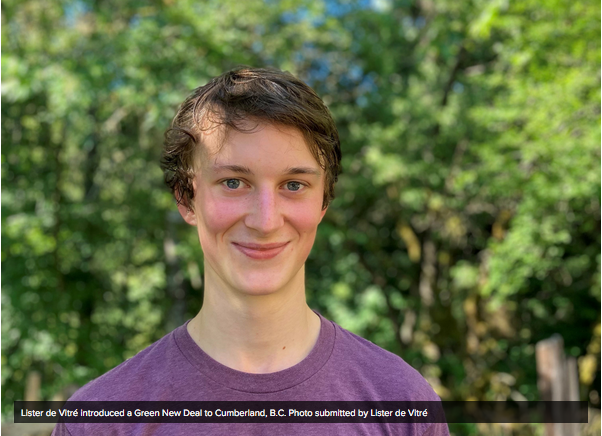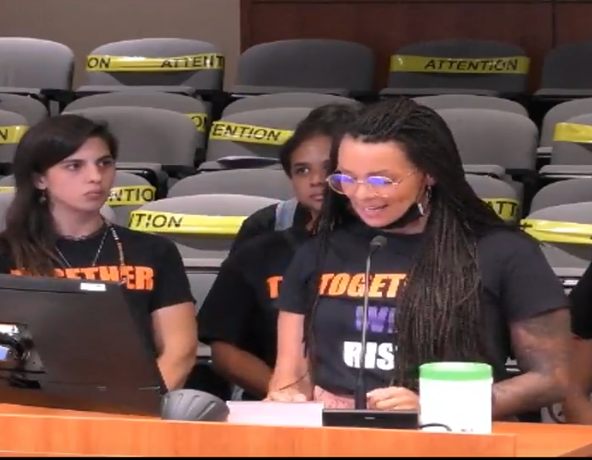By Don White.
If anything seems obvious at this moment, surely it’s our need to do more things ourselves to change our situation. Particularly when those on whom we bestow the authority to act seem more inclined towards the paralysis of political dithering, the inertia of inaction. Another story of our times.
This need for personal action is as urgent when the problem is global as when it’s local. All action, like politics, (and the trickle-down effects of global crises) are experienced at the local level. That means taking local action is essential. And when those we’ve elected to act on our behalf at the various levels of our government remain inert, motivating them to do something about these issues is also an action we need to take.
If this sounds hopelessly abstract, it needn’t be. There are abundant examples of how we can get started. Here are three that have popped up locally in only the past two weeks. The first comes from Cumberland, BC. The others from Nanaimo’s last regular council meeting.

Idealistic teens finessed a Green New Deal for coastal community. National Observer, July 19, 2021. For a “power of one” story, a “think global – act local” tale, or even an episode of “never underestimate the integrity and willing involvement of youth”, look no further. After reading Naomi Klein’s book On Fire: The Burning Case for a Green New Deal and seeing a flyer sent by the Council of Canadians suggesting actions taken by local government might inspire senior levels of government to act, and that residents could encourage local councils to act, teenager Lister de Vitré signed up his friend Ben Mason and, together, they involved community groups in Cumberland to successfully petition local Council to develop its own Green New Deal.
Closer to home and even more recent are the two presentations made on July 26, 2021 to Nanaimo Council, which can be viewed on the video recording of that meeting.

The first presentation (at 21:20 of the recording) was given by Laura Augustine of Canadians Locally improving Communities Society (CLICS). (How is that for an appropriate organization name?) The project for which they were advocating was their Cable Bay Trail campaign “calling on the City of Nanaimo and the RDN to work together to increase the existing trail space and protect the trail from future development attempts on both the RDN lands and City of Nanaimo lands … and to expand the trail and connect the lands surrounding Joan Point Park and Dodd Narrows to form a world class park.” To this end, the group also have created a Facebook page dedicated to that initiative and an online petition calling on these two political bodies to take these actions.

The second presentation (at 26:20) was made in person by Jovan Stephani of the Rise Bridge Project. Several other members of the Project were also in attendance at the meeting, all seeking to inform Council of their current work developing a collaborative social support program, resource centre, and safe space for black, indigenous, people of colour and LGBTQ+. The group’s goal is to work towards making Nanaimo a comfortable, supportive community, and it was appearing before Council to ask for the City’s assistance and support in making this happen. (This group is also on Facebook at https://www.facebook.com/Risebridge).
Taken all together, it would seem the takeaways provided by the three examples are these:
First, there may never be a better time than now to extract ourselves from the messes we’ve created and in which we are now mired. This is true for both social and climate issues making up our complete environment. Delaying action and/or waiting on others to act for us can only make things worse, more difficult to turn around.
Second, rather than being daunted by the enormity and complexity of the tasks in front of us, we can be inspired and reassured by examples of others who are already out there doing what is needed and showing us the way. We need only continue ramping up the action and keep going the way we’re already going. That’s the gift of those individuals and groups already on this path.
And last, rather than being concerned about what others are doing or not doing, we need to focus more on overcoming our own inertia at being part of the solutions. As these examples show us, we are already a society working towards solutions. Thanks to them and others like them, we even have the relative easy options just to support and/or climb on board.
The converse option is equally clear. If we choose to remain passively sitting on the sidelines, we become the effective equals of dithering politicians, and if want to point fingers at causes of unsolved problems, we will have to start by pointing at ourselves.
I also recommend the more sustainable/affordable/progressive candidates vetted at this website: https://www.climatevotenanaimo.com/
Thank you for putting my thoughts into words. Too many on current council use the province's negligence as an excuse…
The council is responsible for the citizens well being safety food security and sheltor for ALL
As I see it every time people will tell you what they think we all want to hear,and after elected…
Dan, a case of “those who know don’t speak, and those who speak don’t know”?
I see no reason to believe that the electorate is more or less informed this cycle, but I have noticed…